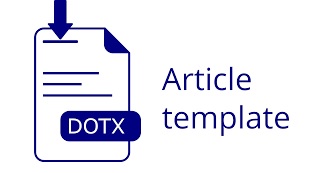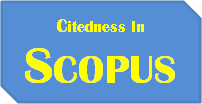Analisis Pelaksanaan Program Kampung Organik Di Kota Magelang Melalui Model MSN-Approach (Studi Kasus Kampung Organik Sari Makmur)
DOI:
https://doi.org/10.30656/sawala.v12i2.9261Keywords:
MSN Approach, Organic Village Program, Food Security, Waste ManagementAbstract
The Organic Village Program is an innovation program of Magelang City in overcoming waste and food security problems that has been established since 2013. However, the number of organic villages in Magelang city has decreased. This study aims to analyze the implementation of the Organic Village Program in Magelang city through the MSN-Approach model. The method used is a qualitative method with a case study approach. Data collection techniques include interviews, observations, and documentation. Informants in this study are the Department of Environment, Department of Agriculture and food, facilitators, administrators and members of Sari Makmur Organic Village. The data analysis used by Miles, Huberman, and Saldana is an interactive data analysis model consisting of data condensation, data presentation, and conclusion. The results of the study indicate that the implementation of the Organic Village Program is quite good. In the mentality approach, the government has been supportive and proactive. Meanwhile, in the participants, there was a decrease in the responsibility of carrying out daily pickets. In the system approach, including regulation, cultural values and organizational structure and functions are good. In the networking approach, including aspects of strategic partnership, synergy, and mutualistic symbiosis are quite good, the obstacle lies in synergy where the skills of participants in this program are still limited.
References
Iswahyudi. (2022). Perilaku Birokrat Garis Depan (Street Level Bureucrats) Dalam Pelayanan Publik. Jurnal Governance and Politics (JGP), 2(1), 1-9.
Kadji, Y. (2015). Formulasi Dan Implementasi Kebijakan Publik. Gorontalo: Universitas Negeri Gorontalo Press
Kumalasari, D., Sarwono, & Noviani, R. (2023). Analisis Dampak Alih Fungsi Lahan Pertanian Ke Non Pertanian Terhadap Ketahanan Pangan di Kecamatan Gondangrejo Kabupaten Karanganyar Tahun 2011-2020. Indonesian Journal Of Environment and Disaster (IJED), 2(1), 68-75.
Localise SDGs Indonesia. Kampung Organik Kota Magelang. https://localisesdgsindonesia.org/beranda/cs/kampung-organik-kota-magelang
Miles, M.B, Huberman, A.M, & Saldana, J. (2014). Qualitative Data Analysis, A Methods Sourcebook, Edition 3. USA: Sage Publications. Terjemahan Tjetjep Rohindi Rohidi, UI-Press.
Utami, Diah Setia. (2019). Sinergitas Antar Kementerian dan Lembaga Guna Meningkatkan Program Layanan Rehabilitasi Penyalahguna Narkotika Sesuai Inpres No.6 tahun 2018. Jurnal Kajian Stratejik Ketahanan Nasional, 2(1), 71-81.
Utari, E., Fatimatuzzahra, M., Pramaisyella, M., Jaedah, S., & Triana, T. (2022). Analisis Pengelolaan Sampah Akibat Pertumbuhan Penduduk dan Perkembangan Pembangunan di Kelurahan Cipare Kota Serang. Bioscientist : Jurnal Ilmiah Biologi, 10(1), 556. https://doi.org/10.33394/bioscientist.v10i1.5122
Videlefsky, Tahlia. 2023. Apa itu kemitraan strategis dan bagaimana cara mencapainya?. https://intandem.vcita.com/blog/partners/what-arestrategic-partnerships
Widodo, J. (2010). Analisis Kebijakan Publik dan Aplikasi Analisis Proses Kebijakan Publik. Malang: Bayumedia Publishing
Yin, R.K. (2015). Studi Kasus: Desain & Metode. PT Raja Grafindo Persada: Jakarta
Downloads
Published
Issue
Section
License
Copyright (c) 2024 Joko Tri Nugraha Nugraha, Lufthansa Hilwa Nugraha Hilwa, Fadlurrahman Aman, Wismaningtyas Tyas

This work is licensed under a Creative Commons Attribution-NonCommercial-ShareAlike 4.0 International License.








